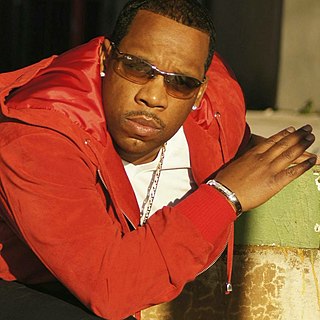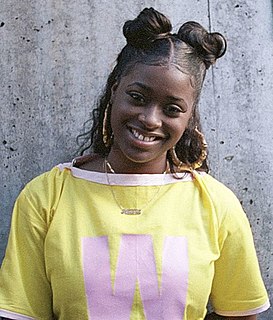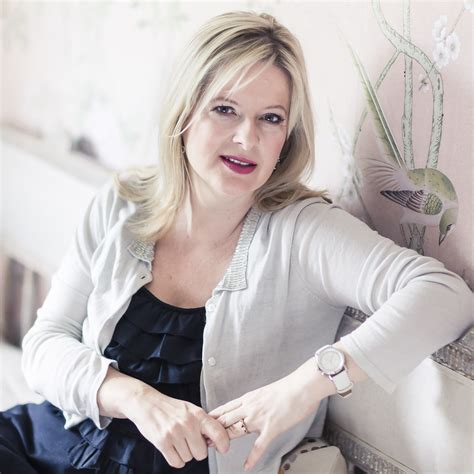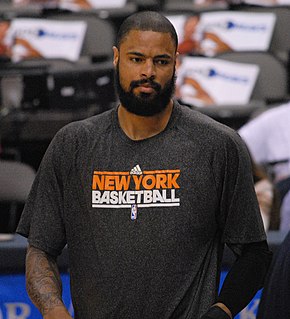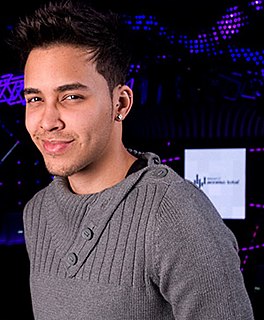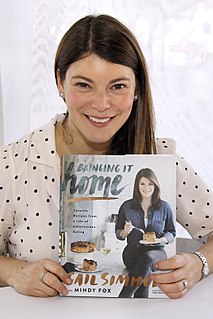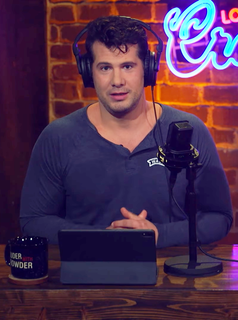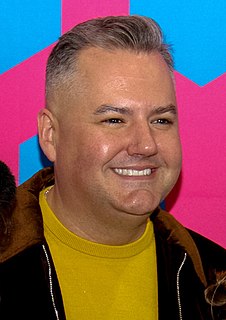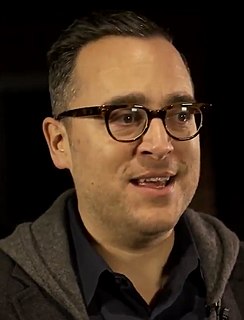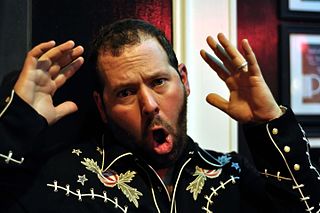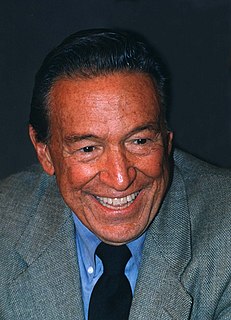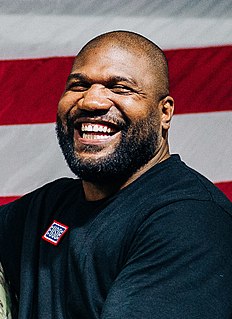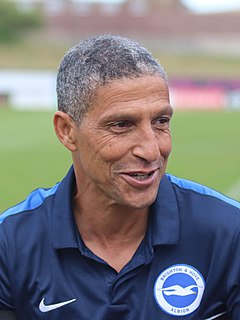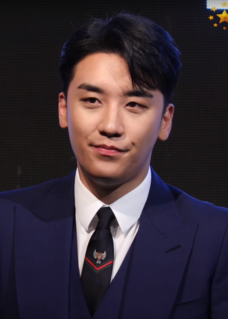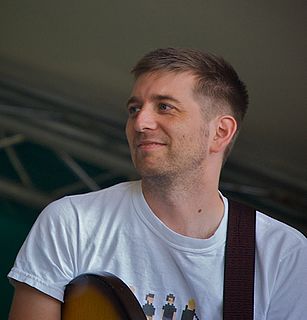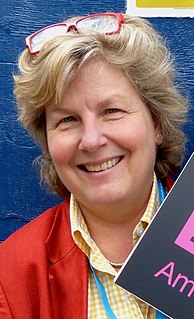Top 1200 Interview Quotes & Sayings - Page 20
Explore popular Interview quotes.
Last updated on April 18, 2025.
I am completely and utterly hooked to all the great shows on A&E and Court TV that are about small town murder. These shows like Forensic Files, City Confidential, I just can't get enough of them. It's always the same sort of deal. You know that they interview the actual people that lived through the experience. I miss Paul Winfield as the host of City Confidential, may he rest in peace.
For me, I try to look at a person's swagger and a little background on them if I already haven't liked them as a ballplayer. All you have to do in the way I am going at it is that I don't attack them like a typical commentator or a typical interview where I am trying to figure out what's your statistics or how you felt about last night? Those things. My things are more lifestyle oriented.
I'm crazy about Diane Von Furstenberg. It's a relationship that's very different; I don't see Diane a lot. So when I saw the article in New York magazine she looked so beautiful and it was talking about her work, too. She set up the interview and it was happening. That's different than someone writing a book about you who you've never met.
How?" I demanded. "How could you have screwed this one up?" "When I got in, they said the manager was on the phone and would be a few minutes. So, I sat down and ordered a drink." This time, I did lean my forehead against the steering wheel. "What did you order?" "A martini." "A martini." I lifted my head. "You ordered a martini before a job interview." "It's a bar, Sage. I figured they'd be cool with it.
The terrible thing in England is if you interview a thousand people, five hundred of them will talk like they're going into a Guy Ritchie movie and the other five hundred will be Mr. Darcy. So we had to find cool, working class kids with no profile who could be John Travolta and James Dean and people like that.
I met Peter Brook, the theater director, who's been based in Paris for many years at the Bouffes du Nord. I admire him tremendously. Some years ago, he was in New York, and he gave an interview with The Times, and what he said was this: "In my work, I try to capture the closeness of the everyday and the distance of myth. Because, without the closeness, you can't be moved, and without the distance, you can't be amazed." Isn't that extraordinary?
I love telling stories. When people interview me live I'm totally forthcoming about stories like that - as long as it's not going to be in print or recorded. It's just for whoever's in the audience. It's always been for me kind of fun and then everyone walks out of there, "She told this story about da da da" but nobody can prove it.
I like what I see when I look in the mirror. If I get sentimental, I look and say, "Uh. It's a bad day. They beat up on me," this, that, and the other thing. But ya know? We've spent one billion trying to convince people to not smoke. It's been phenomenally successful. We've probably saved millions of lives. There aren't many people that have done that. So, you know, when I get to heaven, I'm not sure I'm gonna stand for an interview. I'm going right in.
And then, of course, Bush won reelection, with everything out there, all of our complaints, all of the issues, all of the troubles with Iraq. So where are we? Bush certainly sees himself as having been given an endorsement. He was asked about accountability in an interview, about why Rumsfeld, Rice, and Wolfowitz have been promoted, these people who led us into the debacle in Iraq. Bush said there was accountability - it was the election. So there we are.
I can't live in a bubble and expect to come and work with Dior or go work on a movie and not have some kind of an evolution within myself and my own thought process and a passion about things or what's happening in the world. All of those things are the elements that make you who you are, and those are the things that sincerely come across in a photo or a commercial or in an interview. That's a constant thing for me.
My son was about five or six months old, and he was ill, and I was sent to New York to interview three people back to back. I got home, and I saw my baby. He had been very ill, and he was on three kinds of antibiotics. I'd been away for eight days. I looked at him and thought, 'What am I doing? I'm a terrible mother and a terrible journalist.'
In my head, thought, I would love to do an interview where it's just sort of de-constructed - the talking points of Iraq - sort of the idea of, is this really the conversation we're having about this war? That if we don't defeat Al Qaeda in Iraq, they'll follow us home? That to support the troops means not to question that the surge could work. That, what we're really seeing in Iraq is not a terrible war, but in fact, just the media's portrayal of it.
VIDEO ARCHIVE- INTERVIEW 24768 . GOLD-EYE I like trees… grass… only birds in sky. People walking safe. Family No Creatures. Sleep all night safe. Walk under sun in own place. Grow plants. Build. Be father with mother. Have Children. A place like Petar told me. Home. After Change goes back… I want home.
I play knowing that there is somebody watching me out there in the crowd that has never had the opportunity to watch a game before and it might be the only chance they ever to see one, live in person. Michael Jordan once said that in an interview, and I really took it to heart, when ever I step on the floor I play for that person. Also, I always know my grandfather's out there watching.
That really sums up the strange bluntness that a really prime German interview can have. They're really interested in your cultural velocity in this way that I don't think people in the United States even necessarily think about alternative-rock bands. So it's not like we're against regular rock. We're not like a battling army shaking our weapons against The Rolling Stones.
You could perhaps better tell the story of a place by writing of a tiny village as a sort of prism into the bigger issues the culture was facing. It struck me as a better way to learn about a place, or at least a different way, than just going to interview the president. So I have often tried to tell the story of a place through people there. But I'm just amazed.
I watched that new reality show on ABC with Charlie Gibson, 'America's Next Top Vice President.' ... Oh, what an exciting show that is! Did you see Sarah Palin's interview with Charlie Gibson? Did you all watch that? In fact, John McCain was watching it at home, and at one point, he turned to his wife and said, 'She looks really familiar.'
Years ago, I heard an interview with violinist Yehudi Menuhin. The interviewer said, "Do you still practice?" And he said, "I practice every day." He said, "If I skip a day, I can hear it. If I skip two days, the conductor can hear it. And if I skip three days, the audience can hear it." Oh, yes, you have to keep that muscle firm.
Most of my fans know I love video games. I say it in every interview, so they know. But one thing that I like doing is skateboarding, I like jet skiing, skydiving. It's like a huge roller coaster ride. Like forty seconds of free-falling. That's some of the stuff I love, daredevil stuff. I like horseback riding.
I spent three years researching American Rose, research that included connecting with Gypsy's sister, the late actress June Havoc (I was the last person to interview her) and Gypsy's son, and also spending countless hours immersed in Gypsy's expansive archives at the New York Public Library. I became obsessed with figuring out the person behind the persona.
I sit at this really weird crossroads. My job requires me to take in calories. I take care of myself. I eat healthy. I exercise a lot. But then I have to go to events in cocktail dresses and look fancy, and people want to interview me about what I'm wearing, and then I'm compared to people who are wearing size 2 all the time.
That's one of those questions where somebody says "would you like to see more women behind the camera?" And then it becomes I must have interrupted the interview to make a platform stance. But, no, I do believe it. In Australia, per capita, we've got a slightly more balanced and healthier statistic than here. I've only just started working more regularly with female ADs and its just a beautiful, different energy on set.
In the early days, a Georgia college kid named Chris Putnam created a virus that made your Facebook profile resemble MySpace, then the social-media incumbent. It went rampant and started deleting user data as well. Instead of siccing the F.B.I. dogs on Putnam, Facebook co-founder Dustin Moskovitz invited him for an interview and offered him a job.
Once, during an interview in front of my wife, I was asked, "Are you one of those actors who brings your character home? Do you stay in character?" I said, "No, not really. I don't do that," and she started laughing. I asked her why. She said, "Well, you might think you don't bring characters home, but you do." So, while I don't feel like a character is lingering, it probably is.
I've written about 2,000 short stories; I've only published 300 and I feel I'm still learning. Any man who keeps working is not a failure. He may not be a great writer, but if he applies the old fashioned virtues of hard, constant labor, he'll eventually make some kind of career for himself as a writer. Ray Bradbury, 1967 interview (Doing the Math - that means for every story he sold, he wrote six "un-publishable" ones. Keep typing!)
What I've learned in my life, it's a very interesting social study for me, to go back and forth between being the guy at home and being the guy on the road and being the guy in studio and being the guy in the interview. The environment around you has so much to do with your character, and when I'm home, my character really changes quite a bit.
I was very blessed it was Steven Spielberg who made the movie. He was very much into the redemption side of the story. They asked him in an interview why he had owned the rights to this story for 20 years before he made the movie, and he said, 'I wanted to see what the real Frank Abagnale did with his life before I immortalised him on film.'
I did one interview with the Atlantic. It was very interesting; I could write an entire book on that one experience. I've never had any type of public persona outside of the face recognition I have with this job, so I was really ill prepared to have this conversation. I think the real story was that it became a source for a flurry of other derivative stories. I remember the Post headline said "Marcarelli's Bizarre Life," which to me is code for gay, primarily.
When Caroline Kennedy managed to say 'you know' more than 200 times in an interview with the New York 'Daily News,' and on 130 occasions while talking to 'The New York Times' during her uninspired attempt to become a hereditary senator, she proved, among other things, that she was (a) middle-aged and (b) middle class.
I was in an ESPN interview and was asked, 'Who would I most want to ride a roller coaster with?' and I said Warren Sapp because every time he giggles, you can hear there's a little girl inside of him. I called him a little girl, and he found me on Twitter and was like, 'Are you the Bert who called me a little girl?' I was like, 'Oh, great!'
It goes to show you how we in the press so often miss the big stories that are right under our noses. There is a famous journalistic legend about the time a young reporter covered the Johnstown flood of 1889. The kid wrote: God sat on a hillside overlooking Johnstown today and looked at the destruction He had wrought. His editor cabled back: Forget flood. Interview God.
The poet Amanda Nadelberg puts it nicely in an interview when she says "often what I listen for in poems is a sense that the writer is a little lost, not deliberately withholding information or turning on the heavy mystery machines, but honestly confounded - by the world? isn't it so? - and letting others listen in on that figuring." That's what engages me - the mind in motion, the drama of someone in the process of thinking - and it's the elusive mystery of those movements that I hope to capture in my essays.
I used to do Korean classical music and started training to join an idol group after someone set me up an interview with my current agency. The common thing between Korean classical music and becoming a singer is that I get to go on stage which why I decided to get professional training for K-pop music without holding any bias.
To overcome this obstacle, and to discover and dismantle Saddam Hussein's weapons of mass destruction, UNMOVIC and the IAEA must interview relevant persons securely and with their families protected, even if they protest publicly against this treatment. Hans Blix may dislike running ''a defection agency,' but that could be the only way to obtain truthful information about Saddam's weapons of mass destruction
We're affable guys in They Might Be Giants. We're not gonna do the periscope-down thing, but it's a little bit mind-bending. The biggest struggle is trying to figure out a way to back up far enough in your answer that it can be read without the context of the question. Every declarative statement you see that comes out of an interview with somebody is actually in response to a question. So it's sort of like this very real interpersonal dance where one of the people involved is invisible.
When the media would call and want to interview me, I thought it was 'cause they really wanted to find out what I thought about things. I thought it was because they really wanted to find out who I am. That's not what they wanted. They already in their minds knew who I was and they didn't like it, and they wanted face-to-face opportunities to expose my defects and my problems and my racism and bigotry and all this.
I respect people who come forward and speak, but I'm not asking most of the sex workers I interview now about their work. I'm asking them about their lives in general or their political organizing. I take pains source things pointing back to intellectual work that sex workers have produced, because that's really absent.
Ossie Ardiles got the job at Tottenham. I knew Ossie well and he brought me back as his reserve-team coach. That was my intro into coaching. Over the years I have known lots of other potential coaches who couldn't see a pathway. They couldn't see role models. There were so many BAME coaches who would apply for jobs and not even get an interview.
We made our debut in Japan about few years ago and when we went on a morning show there to promote our album, I did a brief interview in Japanese using simple expressions such as "Yoroshiku onegaishimasu." But one of the members of our group said, "Stay quiet if you can't speak Japanese! It's embarrassing!" So that's when I told myself that I'd show how good I am by studying Japanese hard.
Oral history is a research method. It is a way of conducting long, highly detailed interviews with people about their life experiences, often in multiple interview sessions. Oral history allows the person being interviewed to use their own language to talk about events in their life and the method is used by researchers in different fields like history, anthropology and sociology.
Had there been a Lunatic Asylum in the suburbs of Jerusalem, Jesus Christ would infallibly have been shut up in it at the outset of his public career. That interview with Satan on a pinnacle of the Temple would alone have damned him, and everything that happened after could have confirmed the diagnosis. The whole religious complexion of the modern world is due to the absence from Jerusalem of a Lunatic Asylum.
I guess I still feel that way and yet I'm slightly hesitant to insist on that idea, that it "better be fun for the writer." Or rather, that if it is, then the pleasure is a sign that it's good. Maybe I feel I've read that somewhere, other writers saying it, and I just think there is possibly no formula, and I don't like to read an interview with a writer where they just lay out the doxa of what quality is. It can seem brittle to do that.
I was listening to this interview with fiction writer George Saunders the other day, and he said something about how the role of a writer is to build a more detailed world. I think it applies to what Gord Downie is doing with his body of work, which is to build a more detailed world and there's something really political about that.
I'm 57 years old, and I host a quiz show every single day. I got asked in a recent interview, did I feel that hosting a quiz show helps keep my brain sharp? And I asked - would you ask Stephen Fry that question, who is exactly the same age as me? Somehow, I'm managing to stand up and stay cogent despite my incredible age.
I don't think I'm more politically-based as much as socially-based. My grandmother died on February 29th, and she kept all of my magazine and newspaper scraps, every interview. I've been in the newspapers since I was about 15 - not for rapping, but for real substantive stuff I was doing in the community, organizing around gang violence in the schools. So I had already made my grandma proud before I was on TV. I've always been who I am.
Okay, this is Fran Lebowitz. She gave an interview once for the Paris Review about trying to write fiction and saying that fiction writers start talking about how characters are talking to them, and it's crazy, she's never had that. And I also thought, I'm never gonna be able to do this, because I didn't feel that for a really long time.
A reporter called on Edison to interview him about a substitute for lead in the manufacture of storage batteries that the scientist was seeking. Edison informed the man that he had made 20,000 experiments but none had worked. "Aren't you discouraged by all this waste of effort?" the reporter asked. Edison: "Waste! There's nothing wasted. I have discovered 20,000 things that won't work."
I think, in life, being nervous about something that's forthcoming is very helpful, whether it's an awards show or a family gathering or a job interview. If you're too calm and confident, then I think you aren't executing to the best of your ability. So I try not to let nerves get the best of me, but I welcome them because it tends to fuel me to try harder.
In a print interview, as you may or may not know, they [editors] can do whatever they want. And they do. This is why most people are more hesitant to do print, because they can change it, and they do change it. They even change things that are in quotation marks, which is a pet peeve of mine. I've said to numerous reporters, "Would you read me back my direct quotes?" And they always say no. They always say that's against the policy.
We seem to live in a world where forgetting and oblivion are an industry in themselves and very, very few people are remotely interested or aware of their own recent history, much less their neighbors'. I tend to think we are what we remember, what we know. The less we remember, the less we know about ourselves, the less we are. (Interview with Three Monkeys Online, October 2008)

